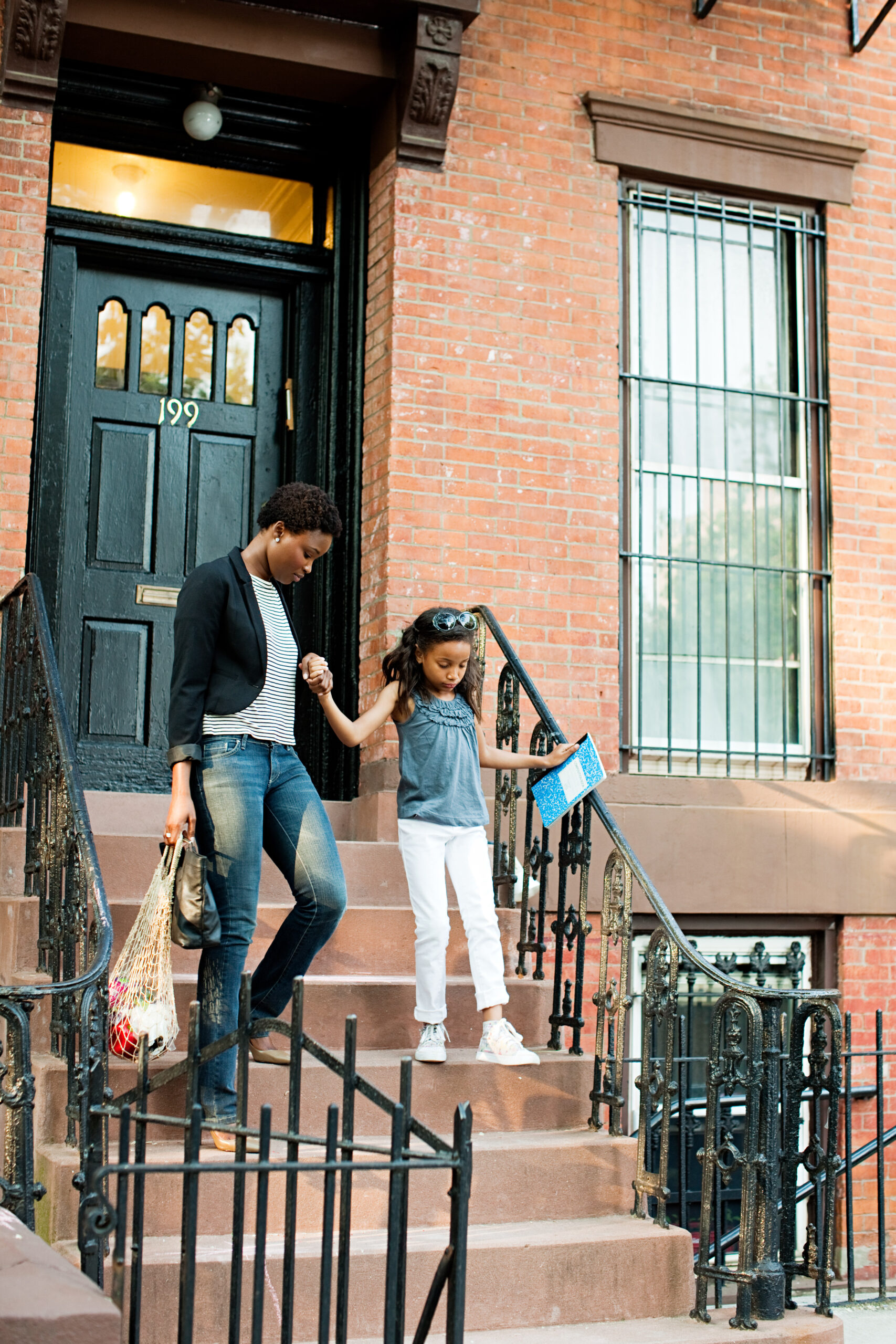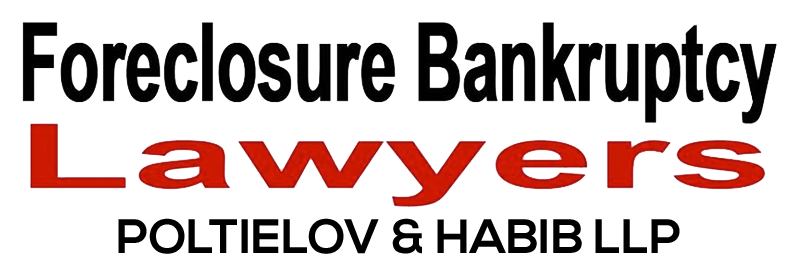
23 Dec Can You Keep Your Home in Queens After Filing Chapter 7?
When you live in Queens and are facing crushing debt, it can feel as if your future is up in the air. For many homeowners, one of the biggest fears is losing the home they worked so hard to own – especially if you are considering Chapter 7 bankruptcy. Will your home be taken away? Will you be forced to move? These questions can cause sleepless nights.
The good news is that Chapter 7 does not always mean losing a home. There are ways to protect what matters most. If you have questions about your home and Chapter 7, contact the Queens bankruptcy lawyers at Poltielov & Habib, LLP. We can explain your rights and advise you on what steps to take next.
What Does Chapter 7 Bankruptcy Mean for Homeowners in Queens?
Chapter 7 bankruptcy can help consumers eliminate debt and get a fresh start. Many people in Queens choose to file when they can no longer keep up with credit card bills, medical expenses, or other payments.
When you file, the court places an automatic stay on most collection actions. This stops creditors from bothering you for a while or filing lawsuits against you. It also pauses foreclosure efforts.
The fact that Chapter 7 is a liquidation bankruptcy makes some homeowners worry that they must give up everything they own. That is not always true. Many people who file Chapter 7 do not lose their homes. Much depends on how much equity you have in the property, how exemptions apply, and whether you are current on your mortgage payments.
When you talk to our Queens bankruptcy lawyers at Poltielov & Habib, LLP, you can learn more about how this process works. We can guide you through the legal rules that apply to your property in Queens and determine if your home is at risk. With careful planning and a full understanding of the law, you may find that it is possible to keep a roof over your head.
Do You Lose Your Home Automatically When Filing Chapter 7?
Many people worry that filing Chapter 7 means an automatic loss of their home. This is not always the case. The trustee, appointed by the court, looks at your property to see what is not protected by exemptions.
If you have a lot of equity in your home that goes beyond what state or federal exemptions allow, the trustee might consider selling it to pay off creditors. However, if you have little to no equity, or if your equity is protected by an exemption, the trustee will likely not bother taking it. The trustee’s goal is to pay creditors from unprotected assets. If your home is fully covered by an exemption, it is not a good source of funds for creditors.
In many cases, if you are keeping up with your mortgage and your home equity is within the allowed exemption amount, you get to keep your home. This is especially true if your mortgage balance is close to the home’s value, meaning there is not a lot of equity to interest the trustee. The law does not want to strip people of everything and leave them on the street. It aims to give you a fresh start while balancing the rights of creditors.
What Is the Homestead Exemption and How Does It Help?
One of the key tools that can help you keep your home is the homestead exemption. This is a legal rule that protects a certain amount of equity in your primary home from the trustee in a Chapter 7 case. ‘
In Queens, as part of New York City, homeowners benefit from the highest tier of homestead exemption in New York State. The current exemption amount for Queens is $204,825. This means that up to $204,825 of equity in your primary residence is protected from creditors in the event of bankruptcy or other financial proceedings.
The homestead exemption in Queens applies to several types of primary residences, including:
- Houses
- Condominiums
- Cooperative apartments (co-ops)
- Mobile homes
For married couples who co-own their home, the exemption amount is doubled. In Queens, this means a married couple can protect up to $409,650 in home equity. However, the exemption only applies to your primary residence. Vacation homes or investment properties do not qualify.
What If You Are Behind on Mortgage Payments?
It is one thing to have equity and be current on your mortgage. But what if you have fallen behind on your payments? If you are facing serious overdue amounts, can Chapter 7 allow you to keep your home?
This question has no simple one-size-fits-all answer. While Chapter 7 can clear many kinds of debt, it does not always offer a way to catch up on mortgage arrears. If you are way behind and cannot catch up, the lender may still push forward with foreclosure after the automatic stay is lifted.
Filing Chapter 7 does pause foreclosure actions, at least for a time. This can give you some breathing room. During this pause, you can try to work out a loan modification or even consider switching to a Chapter 13 bankruptcy if that is more suitable for your situation.
Chapter 13 might allow you to repay mortgage arrears over several years. However, if you remain in Chapter 7 without a plan to address missed payments, the lender can ask the court for permission to proceed with foreclosure. Once granted, you can still lose the home.
Does the Automatic Stay Protect Your Home Permanently?
When you file Chapter 7, the automatic stay goes into effect right away. This stay stops most creditor actions, including foreclosure. But does this mean your home is safe forever?
Not necessarily. The automatic stay is temporary. It gives you a window of time to figure out a plan. While it can stop the immediate threat of foreclosure, your lender can ask the court to lift the stay if you cannot make regular mortgage payments or come to any agreement to resolve the overdue amounts.
Think of the automatic stay as a pause button. It gives you breathing room and a chance to weigh your options. During this time, you can speak with our Queens bankruptcy lawyers at Poltielov & Habib, LLP, about what comes next. We may advise you on whether it makes sense to try for a loan modification, consider a reaffirmation agreement, or explore Chapter 13. We can also talk about non-bankruptcy approaches that might help keep your home.
What If the Mortgage Is More Than the Home Is Worth?
If the home is underwater, meaning you owe more on the mortgage than the home’s value, the trustee is less likely to want it. Selling it will not benefit creditors. This might make it easier for you to keep it, assuming you continue to pay the mortgage. But do you want to keep a home worth less than what you owe?
Some homeowners choose to walk away from such a home in Chapter 7, discharging their liability on the mortgage and starting fresh. Others remain attached to the home for personal reasons, hoping that values will rise or that they can refinance later. The choice is yours, but it helps to weigh the emotional attachment against the financial reality.
Our Queens bankruptcy lawyers can work through these options with you. We understand that a home is not just about numbers on a page. It is where you live and raise a family. With our guidance, you can decide if keeping an underwater home after Chapter 7 makes sense or if letting it go will lead to a stronger financial future.
Contact Our Queens Bankruptcy Lawyers Tpdau
Filing Chapter 7 in Queens does not automatically mean losing your home. By understanding the exemptions, the trustee’s role, and your options, you can often keep the roof over your head. If you are current on your mortgage and your equity fits within the exemption, you stand a good chance. If you are behind on payments or have more equity than allowed, you might consider other approaches, like Chapter 13, reaffirmation, or negotiations with the lender.
No one should face these decisions alone. If you feel lost, contact our Queens bankruptcy lawyers at Poltielov & Habib, LLP. We can explain your rights, review your finances, and help you decide on the best path. Having someone on your side who understands New York laws and knows how to handle the process can give you peace of mind. Instead of guessing, you can rely on facts and good advice.
Call our Queens bankruptcy lawyers at Poltielov & Habib, LLP today at (718) 520-0085 or contact us online. With our help, you can move forward with confidence and be secure in the knowledge that keeping your home after filing Chapter 7 in Queens may be possible.

